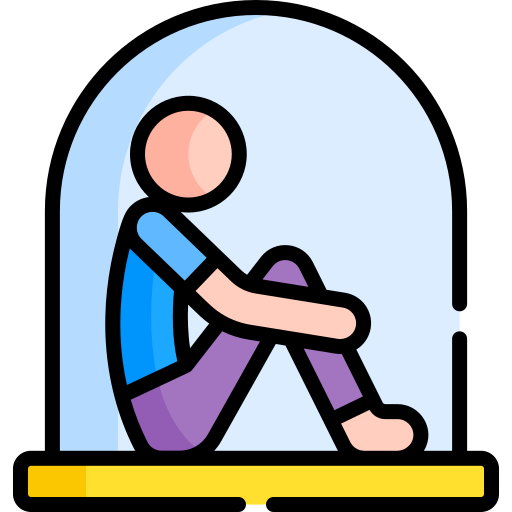In her first year in college, Jazmine was overwhelmed and stressed with a heavy course schedule, assignments, and deadlines. To keep on track, she decided to use sticky notes and reminders on her phone.
One day in class, Jazmine began to hallucinate, seeing sticky notes around the classroom walls and desks. She also believed that she was hearing people whispering codes during her exams.
 Photo by Tai Jyun Chang on Unsplash
Photo by Tai Jyun Chang on UnsplashJazmine couldn't finish her first year at college. She was later diagnosed with a psychotic disorder.
What Is a Psychotic Disorder?
Psychotic disorders are illnesses that affect a person's mind and behavior. A person's mind and thoughts become disconnected from reality.
Different types of psychotic disorders are diagnosed based on the presence of the following symptoms:
Cognitive symptoms — any symptoms that involve thinking
Examples: poor attention, inability to concentrate, and poor memory
Positive symptoms — any symptoms that add thoughts and behaviors that aren't usually present in a person
Examples: having non-realistic ideas, thoughts, and acts, including hallucinations, delusions, disorganized speech, and catatonic behavior (ceasing to speak or remaining motionless for an extended period of time)
Negative symptoms — the absence of thoughts and behaviors that are usually present in a person
Examples: the absence of usual social interaction, expression of emotions, loss of motivation or energy, and catatonic behavior (ceasing to speak or remaining motionless for an extended period of time)

Schizophrenia
Schizophrenia is one of the most common psychotic disorders.
It's diagnosed based on the presence of 2 or more cognitive, negative, and positive symptoms over the course of 1 month for a substantial amount of time (or less if successfully treated).
At least 1 of the symptoms from the categories below must be present:
1: Hallucinations
hearing voices or seeing things that do not exist
feeling unusual sensations
Example: Jazmine was seeing sticky notes and hearing people whispering codes during her exams.

2: Delusions
having irrational beliefs of being followed or threatened
believing that they possess superpowers or receive messages from a deity
believing that people can add thoughts to their head, or can hear or read their thoughts...
Examples: "The FBI is following me," or, "I have a message from God."

3: Thought Disorder or Disorganized Speech
having disorganized or incoherent thoughts or speech
speaking meaningless words or jumping from one topic to another incoherently
Example: "My wife abandoned me. She's evil. Do you have kids? I love kids!"
Schizoaffective Disorder
Schizoaffective disorder refers to an illness that exhibits the psychotic symptoms of schizophrenia alongside a mood disorder. You can learn more about these specific characteristics here.
 Photo by Dmitry Schemelev on Unsplash
Photo by Dmitry Schemelev on UnsplashThere are two types of schizoaffective disorder:
Depressive — depressive symptoms are present most of the time in addition to the psychotic symptoms.
Bipolar — both manic and depressive symptoms are present most of the time in addition to the psychotic symptoms.
Delusional Disorder
A delusional disorder is diagnosed when a person is mainly experiencing delusions. Apart from their delusions, they can continue to interact with others and carry out their usual daily activities.

A person with symptoms of delusional disorder:
frequently lacks self-awareness that their delusions are harmful, irrational, and problematic and becomes preoccupied with their delusions
is unable to accept that their delusions are false even with evidence that their delusion has no reality
The main themes of the delusion can be:
Jealous — believing that their partner or spouse is being unfaithful
Erotomanic — believing that someone (often a well-known person) is in love with them
Grandiose — over-exaggerating their self-worth and power, or believing they have genius talent or knowledge
Persecutory — believing people are following them, spying on them, or planning to harm them
Somatic —believing a physical or medical problem affects their appearance or body
A person may have mixed themes (two or more types of delusions).
How Can I Help?

Jazmine has become more isolated. She misses most of her classes and rarely leaves her room. Jazmine believes that it might just be stress and she'll get better soon.
Quiz
How could you help Jazmine as a friend? Select all that apply.
Take Action
 Photo by Brett Jordan on Unsplash
Photo by Brett Jordan on UnsplashRecognize the symptoms of psychotic disorders and get early treatment to increase the possibility of recovery.
Your feedback matters to us.
This Byte helped me better understand the topic.
